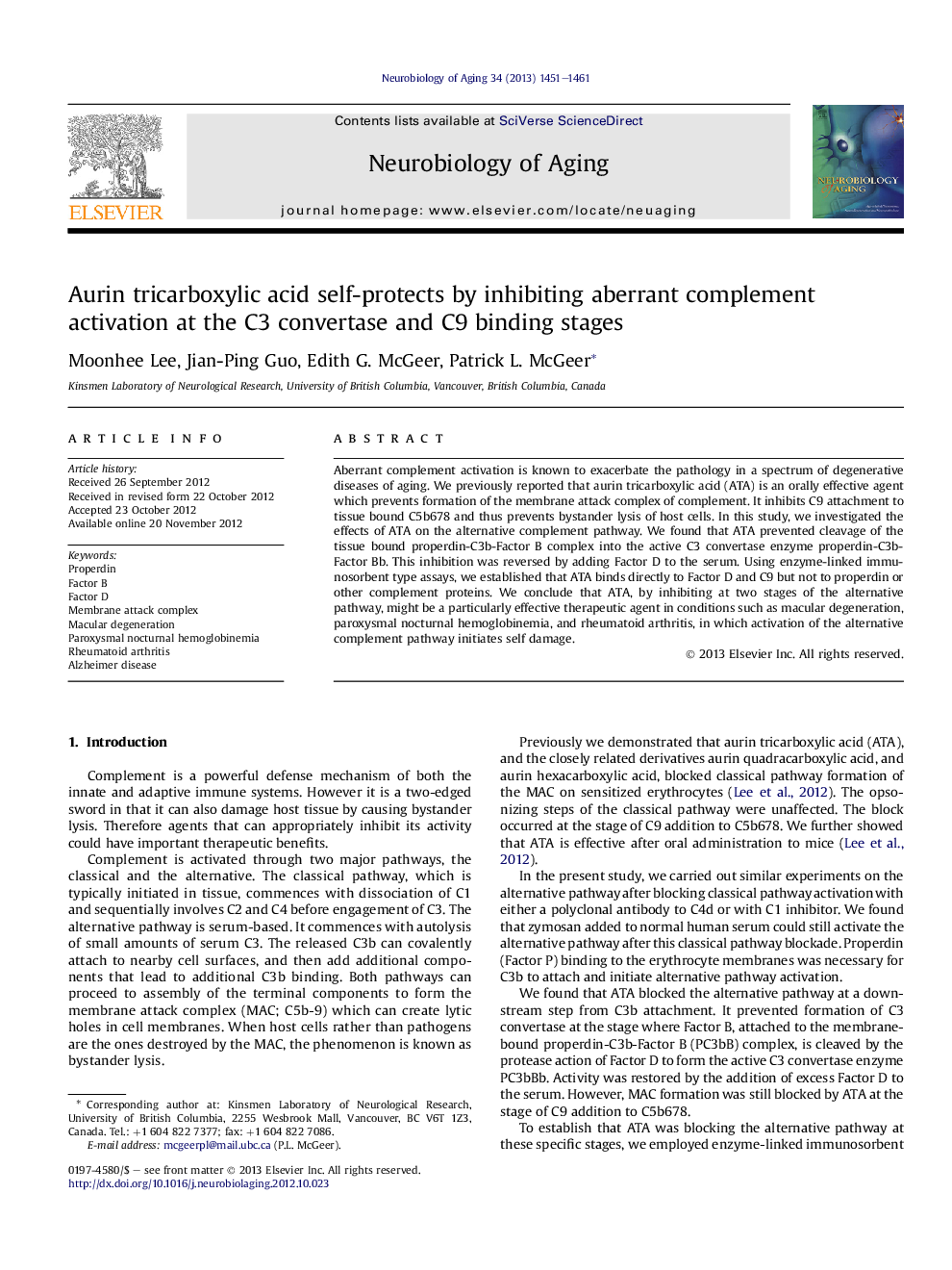| Article ID | Journal | Published Year | Pages | File Type |
|---|---|---|---|---|
| 6807467 | Neurobiology of Aging | 2013 | 11 Pages |
Abstract
Aberrant complement activation is known to exacerbate the pathology in a spectrum of degenerative diseases of aging. We previously reported that aurin tricarboxylic acid (ATA) is an orally effective agent which prevents formation of the membrane attack complex of complement. It inhibits C9 attachment to tissue bound C5b678 and thus prevents bystander lysis of host cells. In this study, we investigated the effects of ATA on the alternative complement pathway. We found that ATA prevented cleavage of the tissue bound properdin-C3b-Factor B complex into the active C3 convertase enzyme properdin-C3b-Factor Bb. This inhibition was reversed by adding Factor D to the serum. Using enzyme-linked immunosorbent type assays, we established that ATA binds directly to Factor D and C9 but not to properdin or other complement proteins. We conclude that ATA, by inhibiting at two stages of the alternative pathway, might be a particularly effective therapeutic agent in conditions such as macular degeneration, paroxysmal nocturnal hemoglobinemia, and rheumatoid arthritis, in which activation of the alternative complement pathway initiates self damage.
Keywords
Related Topics
Life Sciences
Biochemistry, Genetics and Molecular Biology
Ageing
Authors
Moonhee Lee, Jian-Ping Guo, Edith G. McGeer, Patrick L. McGeer,
